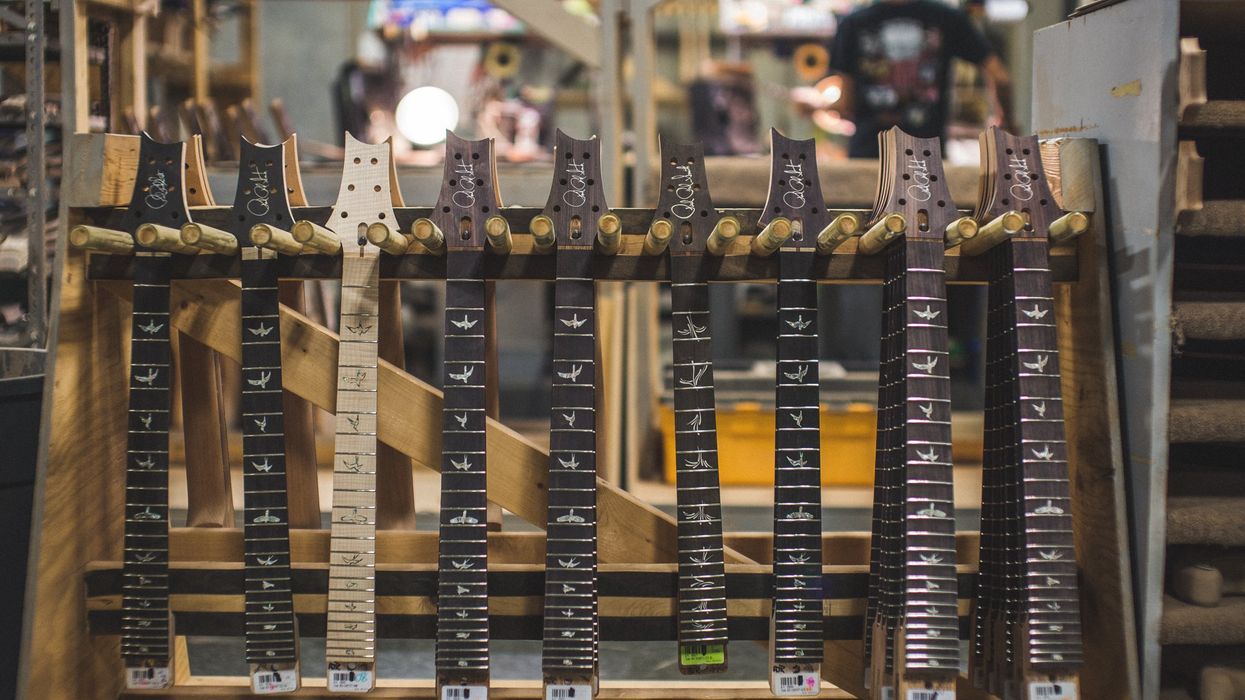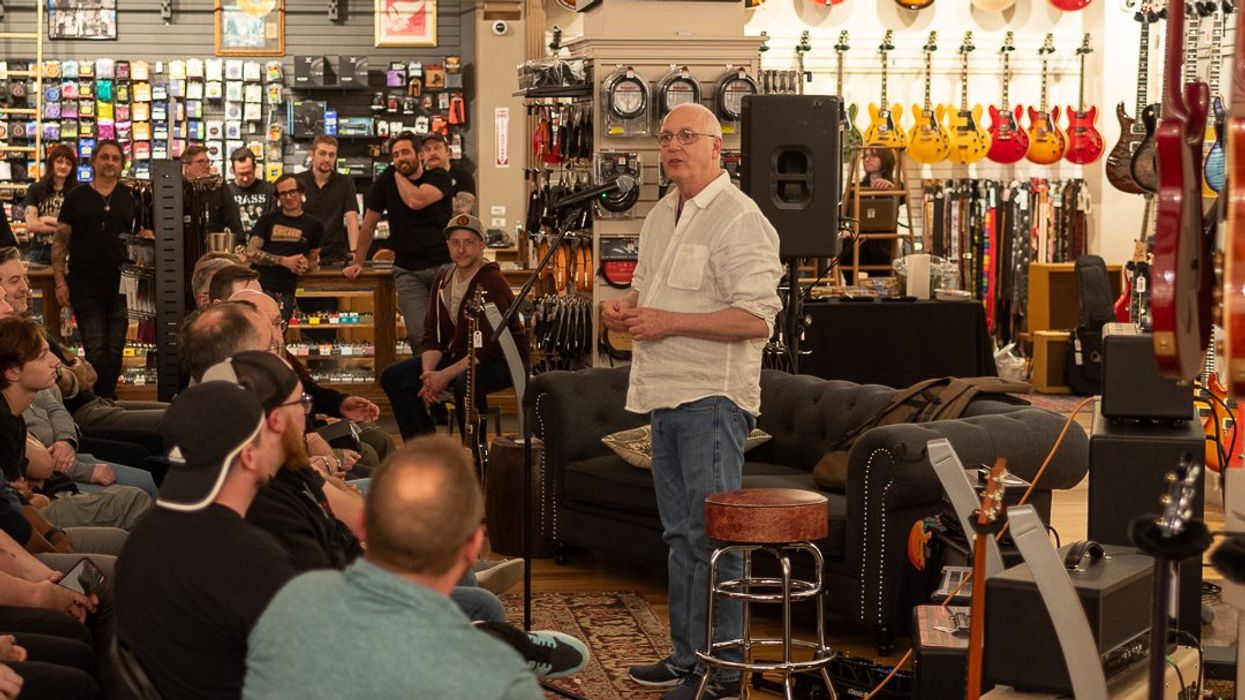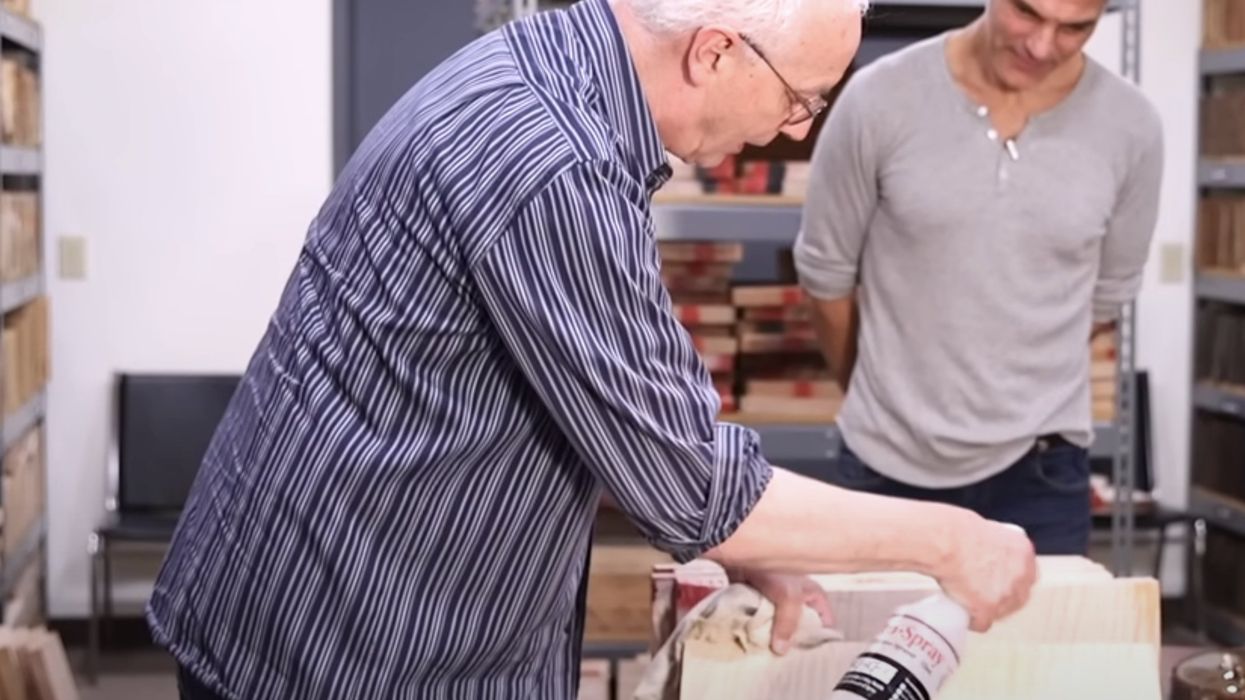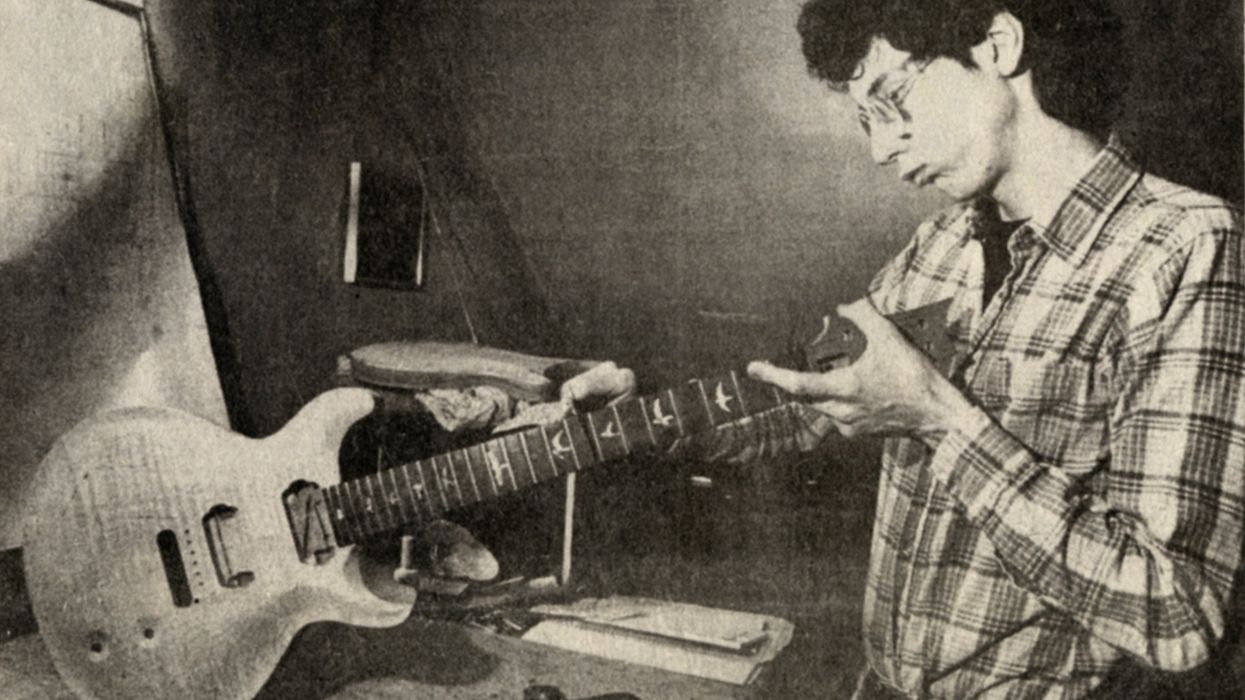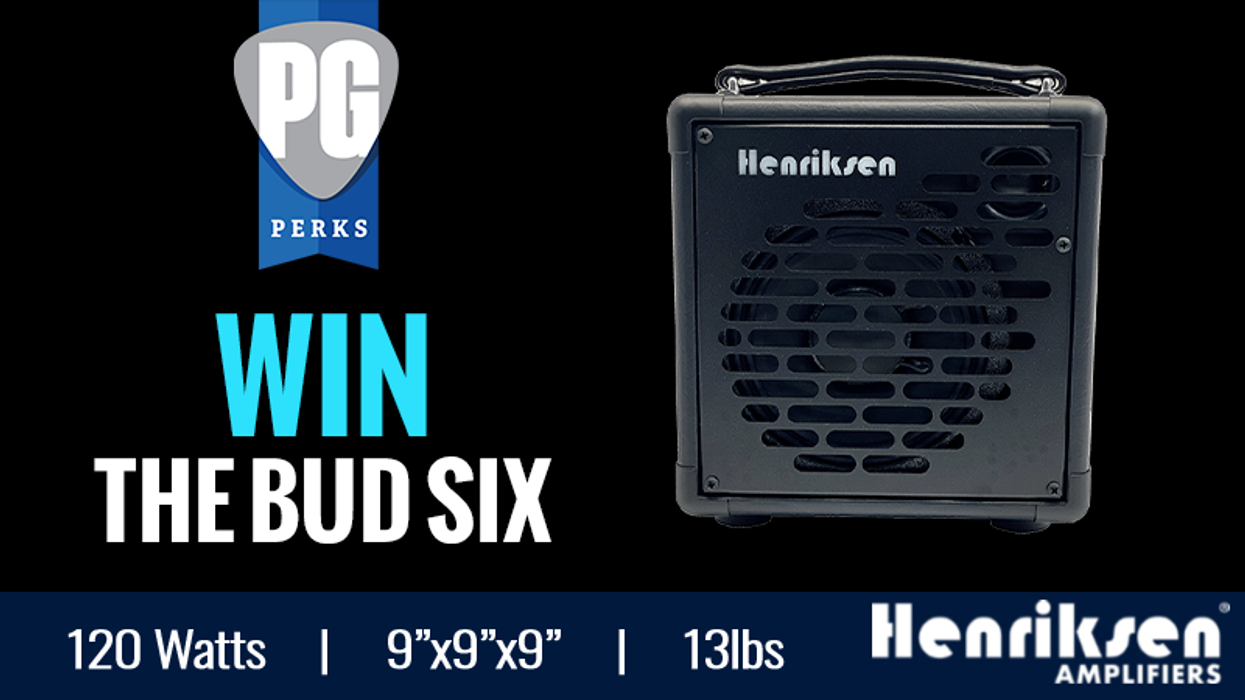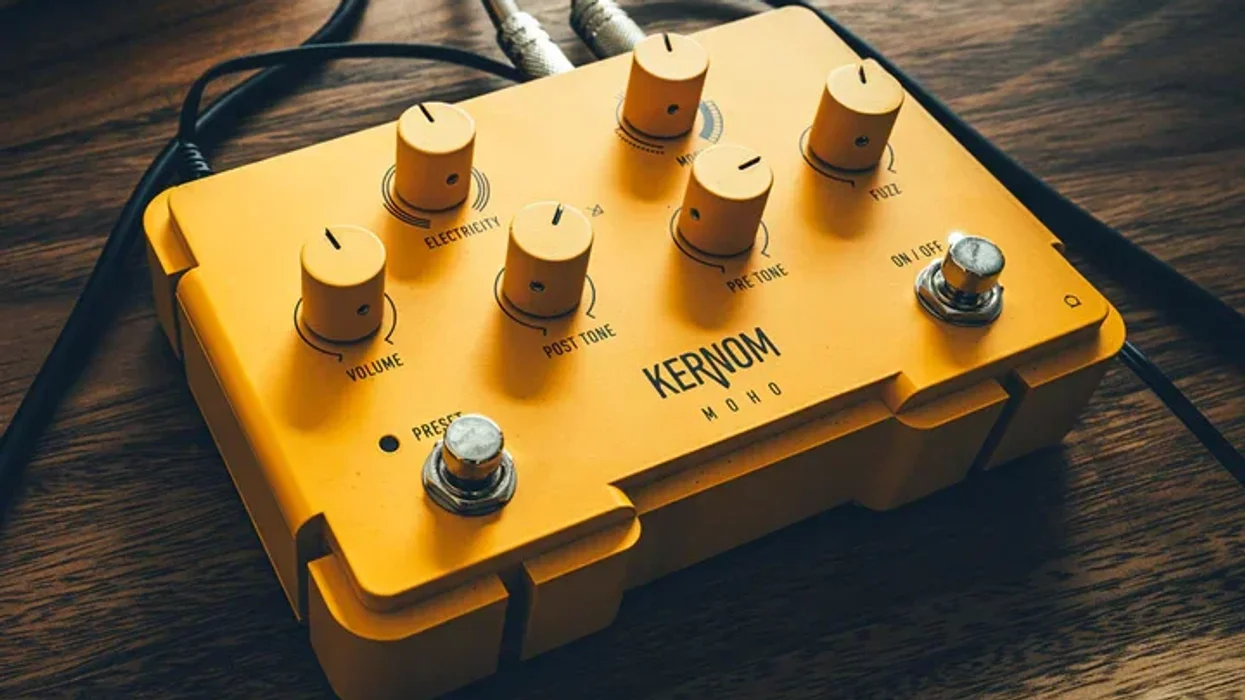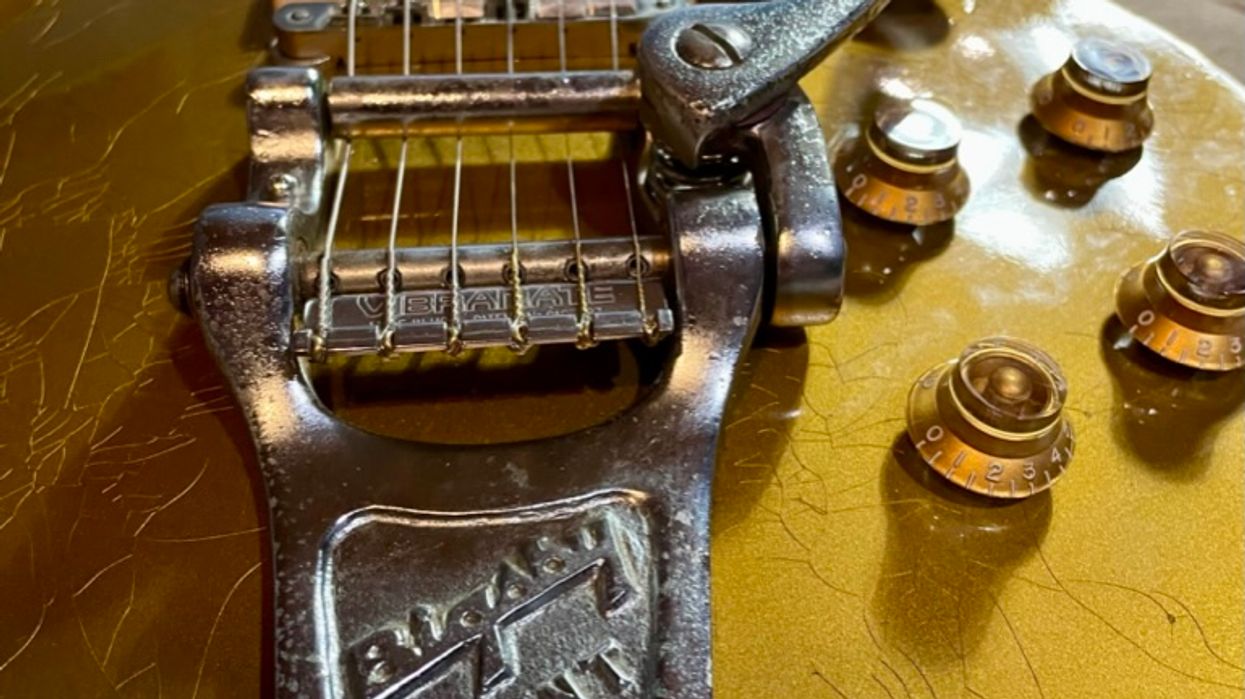After 40 years at the helm of PRS Guitars, our columnist reflects on the nature of evolution in artistry—of all kinds.
Reflecting on four decades in business, I don’t find myself wishing I “knew then what I know now.” Instead, I’m grateful to still have the curiosity and environment to keep learning and to be in an art that has a nonstop learning curve. There’s a quote attributed to artist Kiki Smith that resonates deeply with me: “I can barely control my kitchen sink.” That simple truth has been a guiding principle in my life. We can’t control the timing of knowledge or discovery. If profound learning comes late in life, so be it. The important thing is to remain open to it when it arrives.
I look at what’s happened at PRS Guitars over the last 40 years with real pride. I love what we’ve built—not just in terms of instruments but in the culture of innovation and craftsmanship that defines our company. The guitar industry as a whole has evolved in extraordinary ways, and I’m fortunate to be part of a world filled with passionate, talented, and good-hearted people.
I love learning. It may sound odd, but there’s something almost spiritual about it. Learning isn’t constant; it comes in stages. Sometimes, there are long dry spells where you can even struggle to hold onto what you already know. Other times, learning is sporadic, with nuggets of understanding appearing here and there that are treasured for their poignancy. And then there are those remarkable moments when the proverbial floodgates open, and the lessons come so fast that you can barely keep up. I’ve heard songwriters and musicians describe this same pattern. Sometimes, no new songs emerge; sometimes, they trickle out one by one; and sometimes, they arrive so quickly it’s impossible to capture them all. I believe it’s the same for all creatives, including athletes, engineers, and everyone invested in their art.
Looking back over 40 years in business and a decade of preparation before that, I recognize these distinct phases of learning. Right now, I’m in one of those high-gain learning periods. I’ve taken on a teacher who is introducing me to concepts I never imagined, ideas I didn’t think anyone could explain—things I wasn’t even sure I was worthy of understanding. But when he calls and says, “Have you thought about this?” I lean in, eager to absorb, not just to learn something new for myself, but because I want him to feel his teaching is appreciated, making it more likely that the teaching continues.
“Learning isn’t just about accumulating knowledge; it’s about applying it, sharing it, and evolving because of it.”
Beyond structured teaching, learning also comes through experience, discovery, and problem solving. We recently got our hands on some old, magical guitars, vintage pickups, microphones, and mic preamps. These aren’t just relics; they’re windows into a deeper understanding of how things work and what the engineers who invented them knew. By studying the schematics of tube-mic preamps, we’re uncovering insights that directly influence how we wire guitar pickups and their electronics. It may seem like an unrelated field, but the many parallels in audio engineering are there if you look. Knowledge in one area has a ripple effect, unlocking new possibilities in another.
Even as I continue learning, I recognize that our entire team at PRS is on this journey with me. We have people whose sole job is to push the boundaries of what we understand about pickups, spending every day refining and applying that knowledge so that when you pick up a PRS guitar, it sounds better. More than 400 people work here, each contributing to the collective advancement of our craft. I am grateful to be surrounded by such a dedicated and smart team.
One of my favorite memories at PRS was at a time we were deep into investigating scale lengths on vintage guitars, and some unique pickup characteristics, when one of our engineering leaders walked into my office. He had just uncovered something astonishing and said, “You’re not going to believe this one.” That excitement and back-and-forth exchange of ideas is what keeps this work so rewarding.
As I reflect on my journey, I see that learning isn’t just about accumulating knowledge; it’s about applying it, sharing it, and evolving because of it. I get very excited when something we’ve learned ends up on a new product. Whether lessons come early or late, whether they arrive in waves or trickles, there is always good work to be done. And that is something I just adore.


